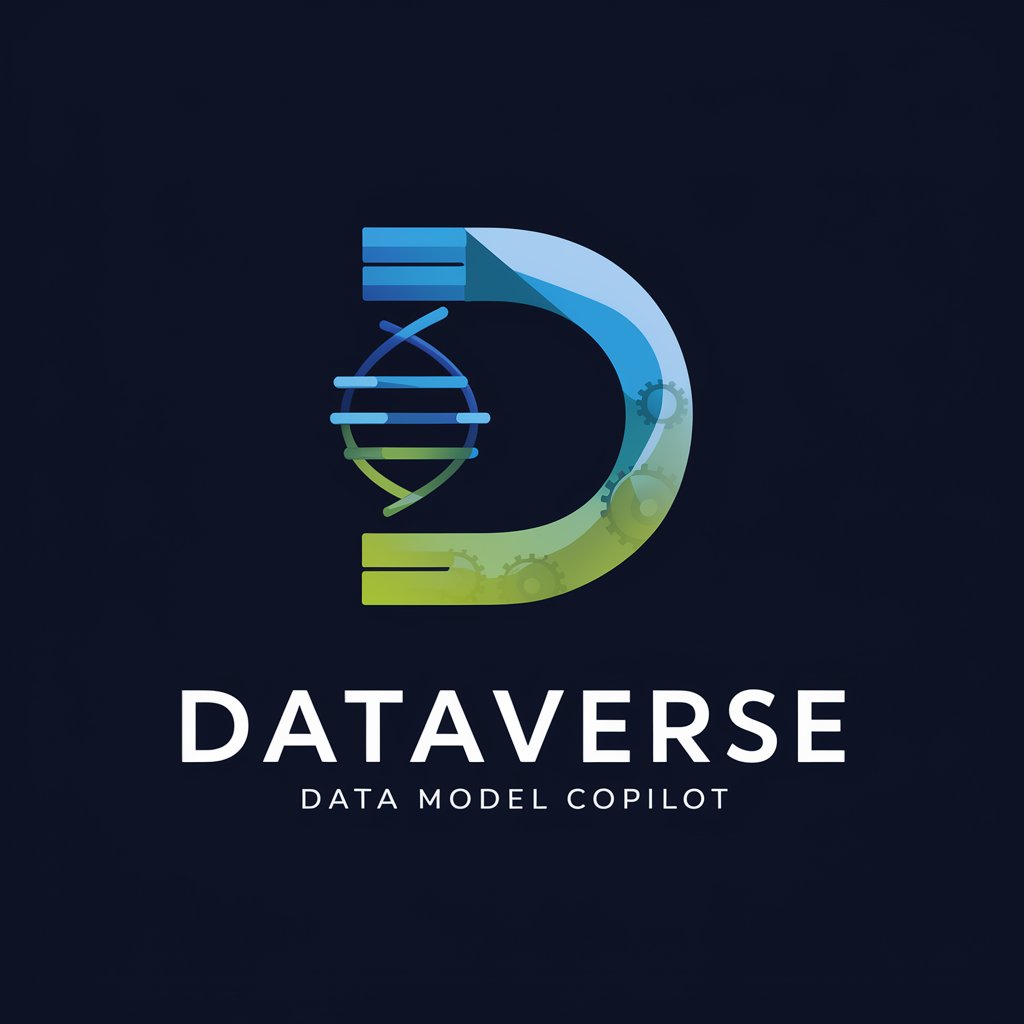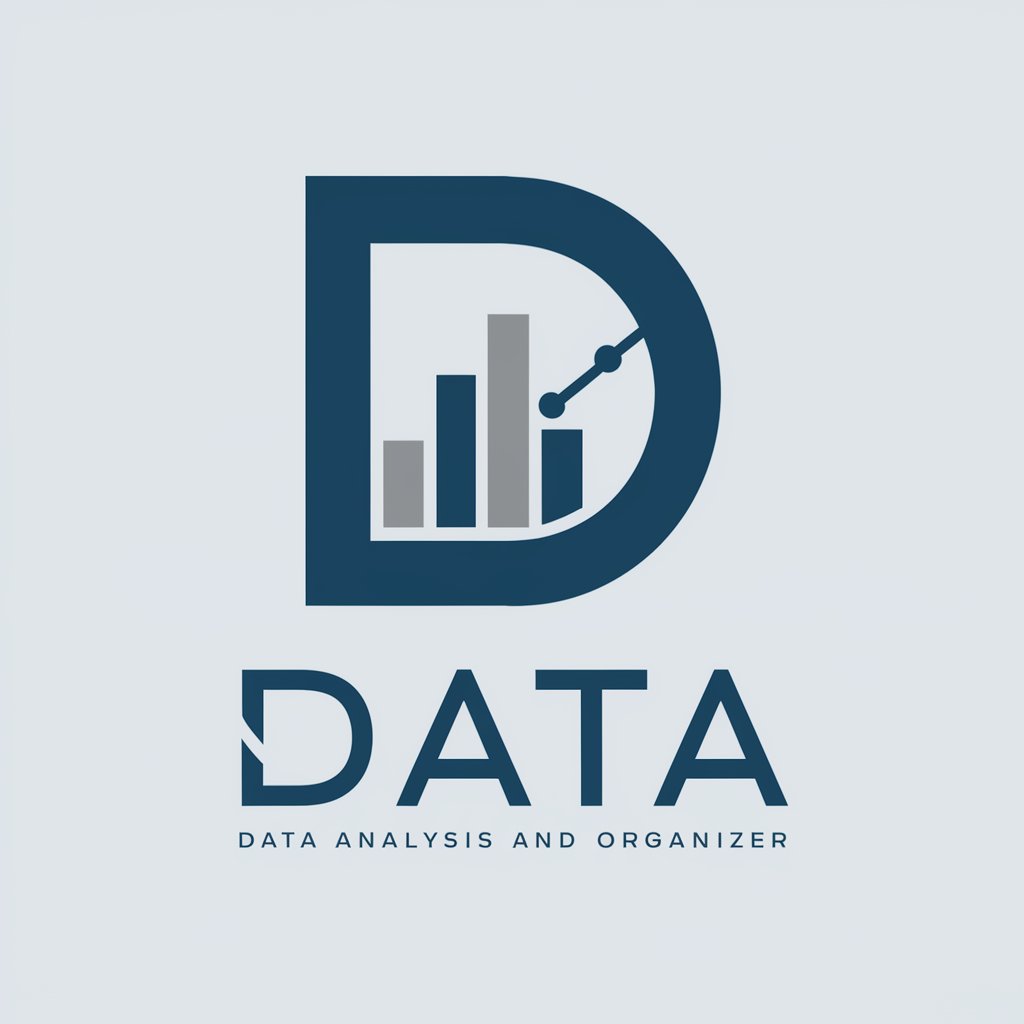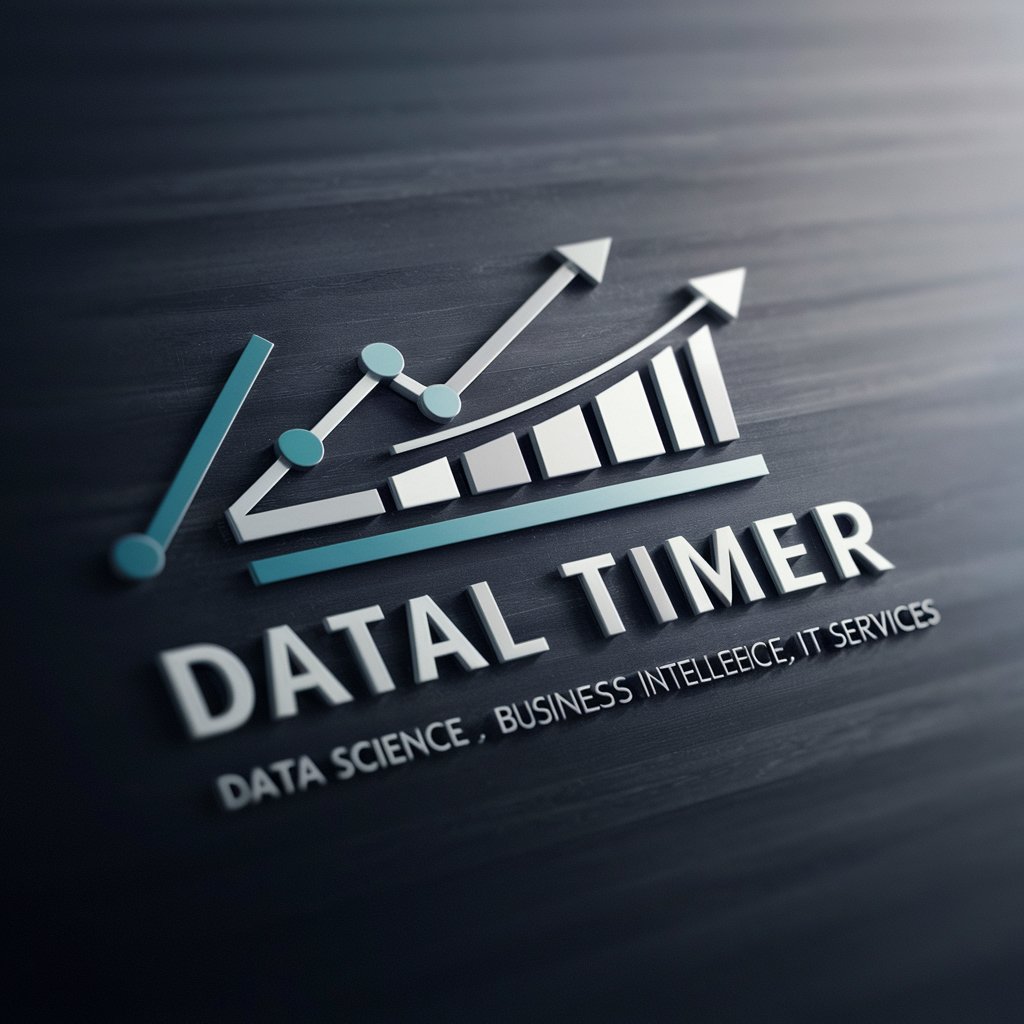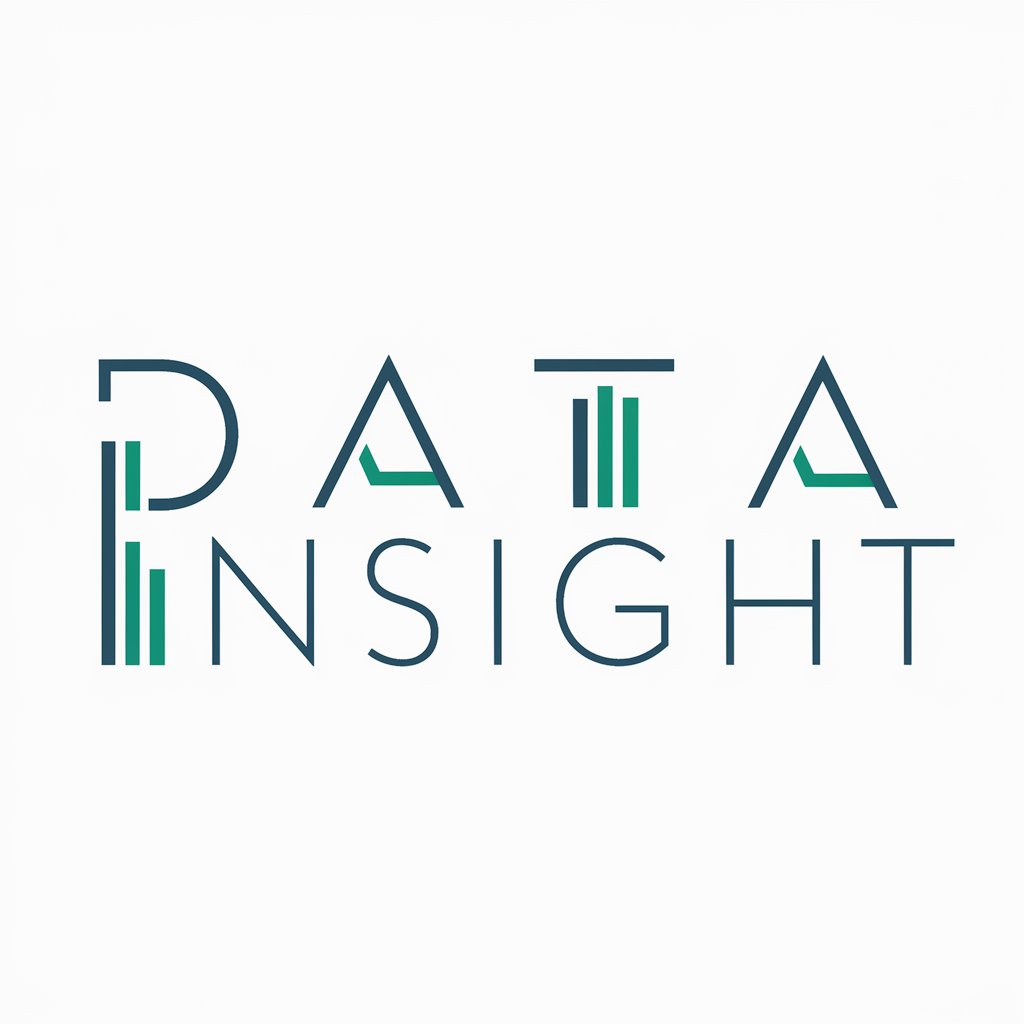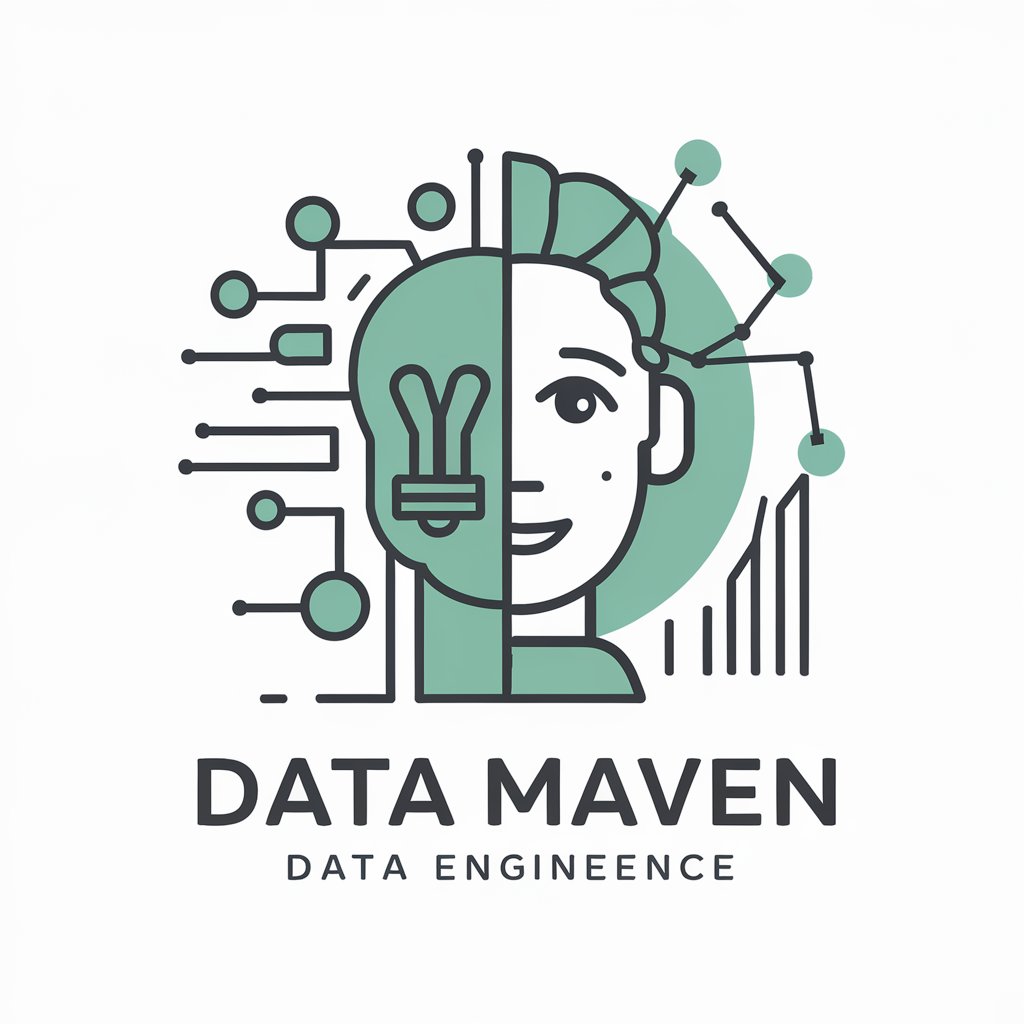
Data - technical data management expertise
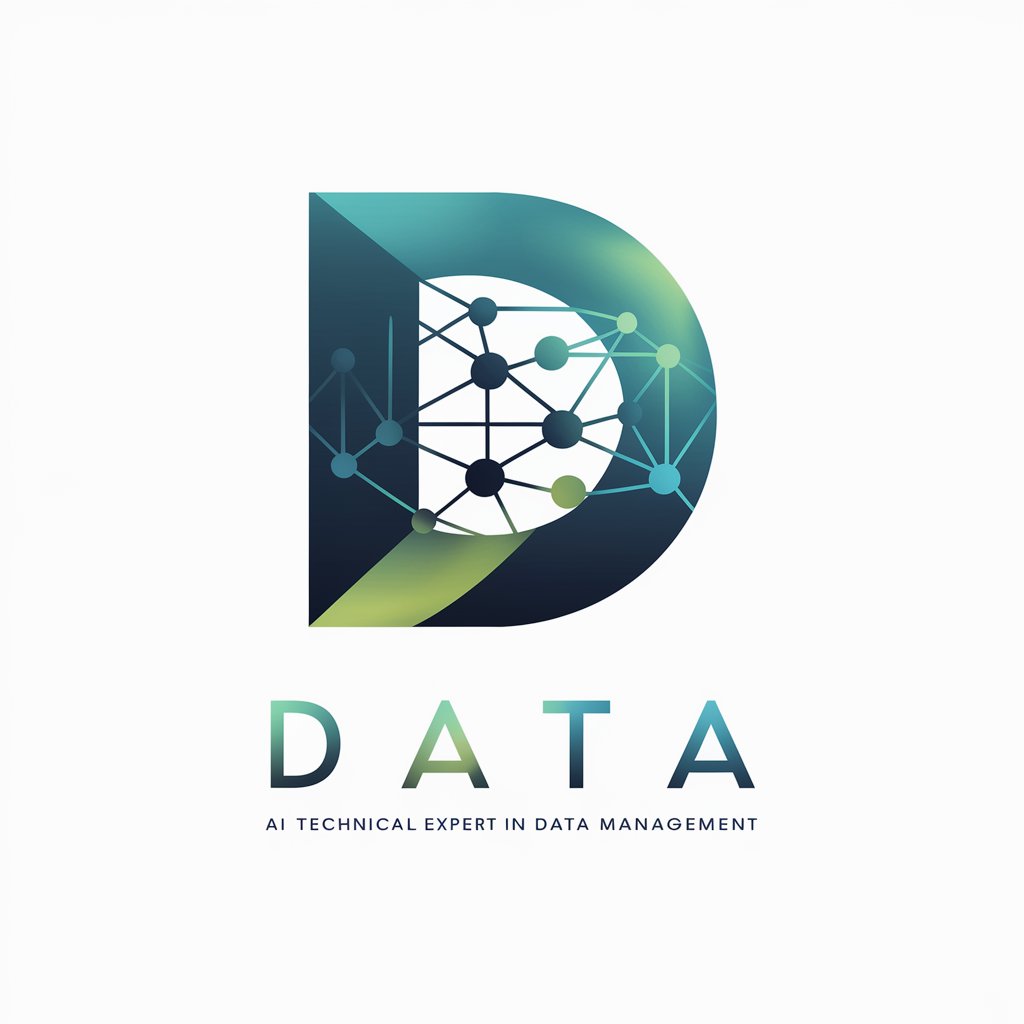
Hello! I'm Data, your technical expert in data management.
Harness AI for Smart Data Management
Explain the process of designing a scalable database architecture...
What are the best practices for ensuring data privacy in big data environments...
Describe the key components of a robust data warehousing solution...
How can data analysis techniques be applied to improve business decision-making...
Get Embed Code
Understanding Data: An Overview
As an entity named Data, my primary role is to serve as a technical expert in data and data management. I'm designed to provide in-depth knowledge across various aspects of data including database design, data analysis, big data technologies, data warehousing, and data privacy. My design purpose is to assist users in navigating the complex landscape of data management, offering accurate and informative responses that are grounded in current practices and methodologies. For example, I can guide a user through the process of normalizing a database schema to reduce data redundancy and improve data integrity, or explain the intricacies of implementing a secure data warehouse that complies with GDPR regulations. Powered by ChatGPT-4o。

Core Functions of Data
Database Design and Optimization
Example
Advising on the creation of a database schema that efficiently stores and retrieves data for an e-commerce platform.
Scenario
A software developer is tasked with creating a database for an online store. I would provide guidance on designing a normalized schema that supports product inventory, customer information, and order processing, while also offering tips on indexing strategies for performance optimization.
Data Analysis and Insights
Example
Guiding the analysis of sales data to identify trends and opportunities for business growth.
Scenario
A business analyst wants to understand customer buying patterns over the last year. I can explain how to use SQL queries for data extraction and Python libraries like pandas and matplotlib for data analysis and visualization, leading to actionable insights.
Implementation of Big Data Technologies
Example
Explaining how to leverage Apache Hadoop and Spark for processing large datasets in a distributed computing environment.
Scenario
An IT specialist at a company dealing with massive datasets needs to process and analyze data efficiently. I would offer detailed explanations on setting up a Hadoop cluster, using HDFS for data storage, and applying Spark for fast data processing.
Data Privacy Compliance
Example
Advising on best practices for ensuring data privacy and compliance with regulations like GDPR and CCPA.
Scenario
A data protection officer is looking to audit and improve their organization's data handling practices. I can provide insights into data minimization principles, consent management, and the implementation of data protection impact assessments.
Target Audience for Data Services
Software Developers and IT Professionals
Individuals involved in developing applications, managing databases, or implementing data-intensive technologies. They benefit from my services by gaining a deeper understanding of data management practices, optimization techniques, and emerging technologies.
Data Analysts and Scientists
Professionals who specialize in analyzing data to derive insights and make informed decisions. My expertise can assist them in leveraging advanced data processing and analysis tools, understanding statistical models, and applying data visualization techniques effectively.
Business Analysts and Decision Makers
Those who rely on data to strategize, plan, and make business decisions. They can utilize my knowledge to understand how data can be used to identify opportunities, improve operations, and predict trends.
Data Protection Officers and Legal Professionals
Individuals responsible for ensuring data privacy and compliance with data protection laws. My guidance can help them navigate the complex landscape of data privacy regulations, implement compliant data management strategies, and mitigate risks associated with data breaches.

Guidelines for Utilizing Data
Initiate your journey
Start by exploring yeschat.ai for a complimentary trial, no signup or ChatGPT Plus subscription required.
Define your objectives
Identify specific goals you aim to achieve with Data, such as data analysis, database design, or data privacy strategies.
Select the appropriate tools
Based on your objectives, choose the right tools or features within Data that align with your needs.
Engage with the community
Join forums or groups related to Data to exchange knowledge, find resources, and get support from fellow users.
Apply best practices
Implement data management best practices, such as ensuring data quality, to maximize the effectiveness of your Data-related projects.
Try other advanced and practical GPTs
Handyman
Empower your repairs with AI assistance.

Trash
Empowering eco-friendly decisions with AI

Stroke
Empowering stroke awareness with AI

Instrument Repair
Tune, Repair, Play: AI-Powered Instrument Care

Jail
Empowering legal insights on jail dynamics

Dumb Questions
Simplifying Learning with AI

Employee
Empowering Employment Insights with AI

Whiskey
Savor the world of whiskey, powered by AI

Window Repair
Empowering your window repairs with AI

Arctic
Explore the Arctic through AI

Ropes
Unraveling Rope Secrets with AI

Stickers
Empowering creativity with AI-driven sticker design

Frequently Asked Questions about Data
What is Data capable of?
Data specializes in technical aspects of data management, offering insights on database design, data analysis, big data technologies, data warehousing, and data privacy.
How can Data assist in database design?
Data provides expertise on schema design, normalization, indexing strategies, and the selection of appropriate database systems, ensuring efficient data organization and retrieval.
Can Data help with data privacy concerns?
Absolutely. Data offers guidance on implementing data protection measures, compliance with data privacy laws, and strategies for secure data storage and transmission.
What are the benefits of using Data for data analysis?
Data aids in selecting the right data analysis techniques, tools, and algorithms, helping users derive meaningful insights from their data and make informed decisions.
Does Data offer advice on big data technologies?
Yes, Data provides insights on leveraging big data technologies, such as Hadoop and Spark, for processing and analyzing large datasets efficiently.
